Protests have been held across Europe since the unprecedented October 7 Hamas attacks on Israel unleashed the latest Gaza war.
Several thousand people marched through central Paris in torrential rain behind a banner saying “Halt the massacre in Gaza and West Bank, immediate ceasefire”.
“France must immediately call for a ceasefire so that the guns go silent,” said CGT union secretary general Sophie Binet, one of several union leaders to speak at the rally.
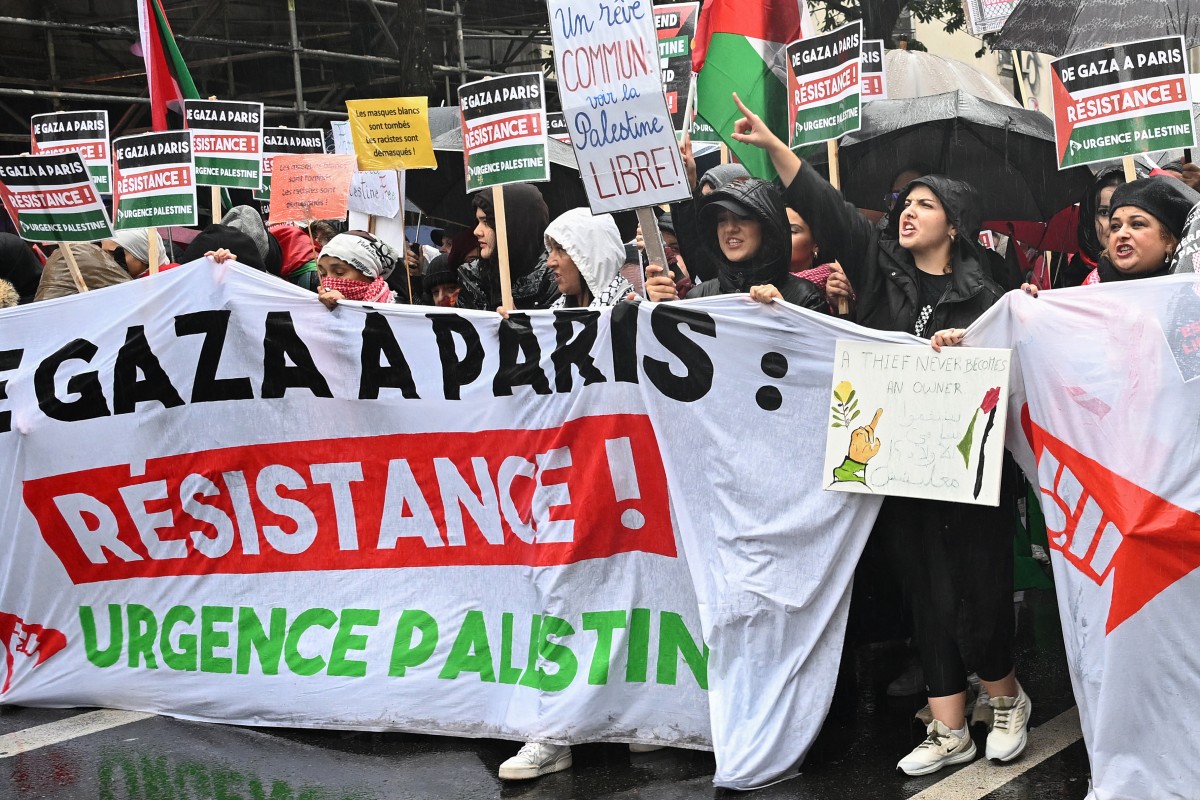
The CGT estimated that 60,000 people rallied in the capital and a further 40,000 gathered in dozens of other towns across the country.
The interior ministry however said 7,000 people marched in Paris and 45,000 nationwide for the third straight Saturday.
In Marseille, AFP saw several hundred people stage a minute’s silence for Palestinian victims of the war, while in Toulouse more than 1,200 people took part in a march, according to police.
Israel says Hamas militants killed more than 1,200 people, mainly civilians, and took 239 hostage when they stormed across the border on October 7.
The Hamas-run health ministry in Gaza says around 12,300 people have died in the Palestinian territory in Israel’s relentless military response, more than 5,000 of them children.
‘Free Palestine’
Elsewhere in Europe, organisers said around 4,000 people marched in Geneva, lighting candles displayed as a map of Gaza in front of the United Nations’ European headquarters.
One large banner read “Stop Genocide in Gaza” and many shouted “Free, free Palestine!” in English.
Two rallies were held in Amsterdam, one urging a ceasefire for Gaza, another demanding the release of the Hamas-held hostages, though police said the protests were calm and no arrests were made.
Several thousand marched in Germany, too.
Around 5,000 marched through Berlin with some demonstrators shouting slogans, such as “Germany media lie, don’t be deceived,” and “Freedom for Gaza”, the Berliner Zeitung reported.
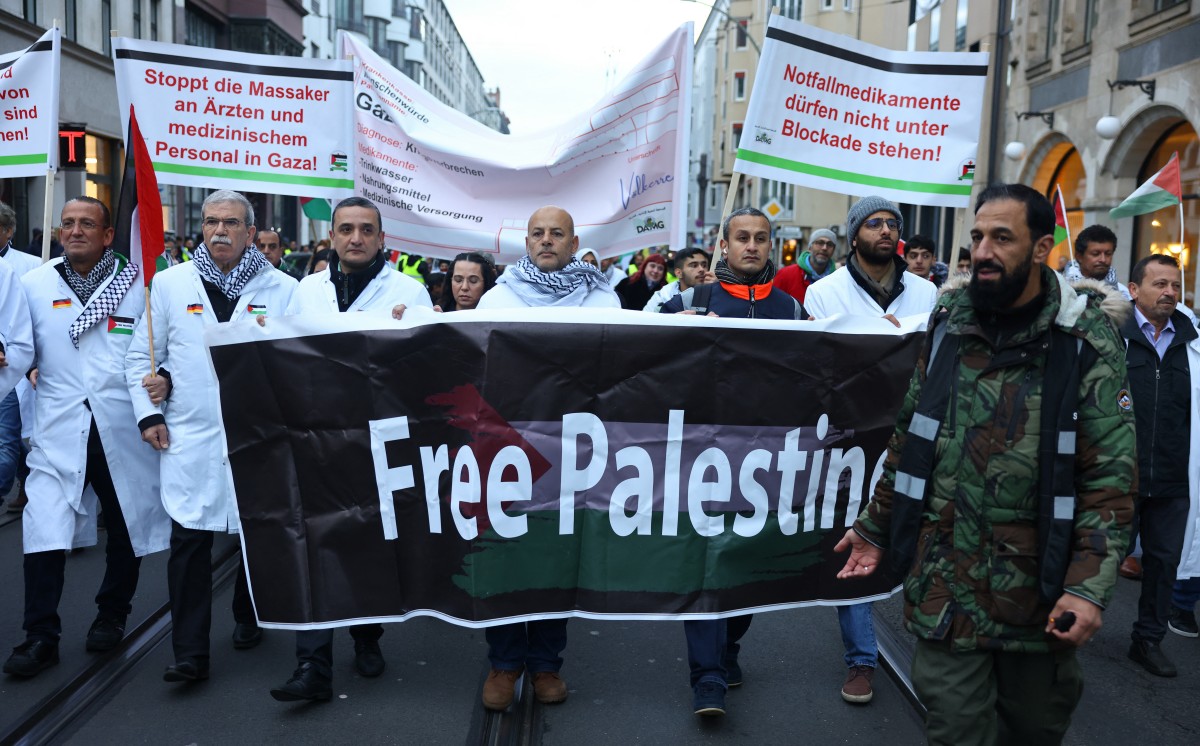
Several thousands marched in Lisbon, many also shouting in English “Palestine will be free”.
“I think the injustice toward Palestine, for the past 75 years, is incredibly severe,” said Maria Joao Ralha, 64.
A few hundred people marched through Warsaw, with the protest culminating in a rally in front of Israel’s embassy in Poland.
In Istanbul, which has seen massive protests called by Turkish President Recep Tayyip Erdogan urging an end to Israel’s campaign, about 100 people lit flares and held up anti-war banners under heavy rain outside the Israeli consulate.
The rally was called by football supporter groups, which often play an important role in Turkish protests.
All Israeli diplomatic staff left Turkey last month as a security precaution.
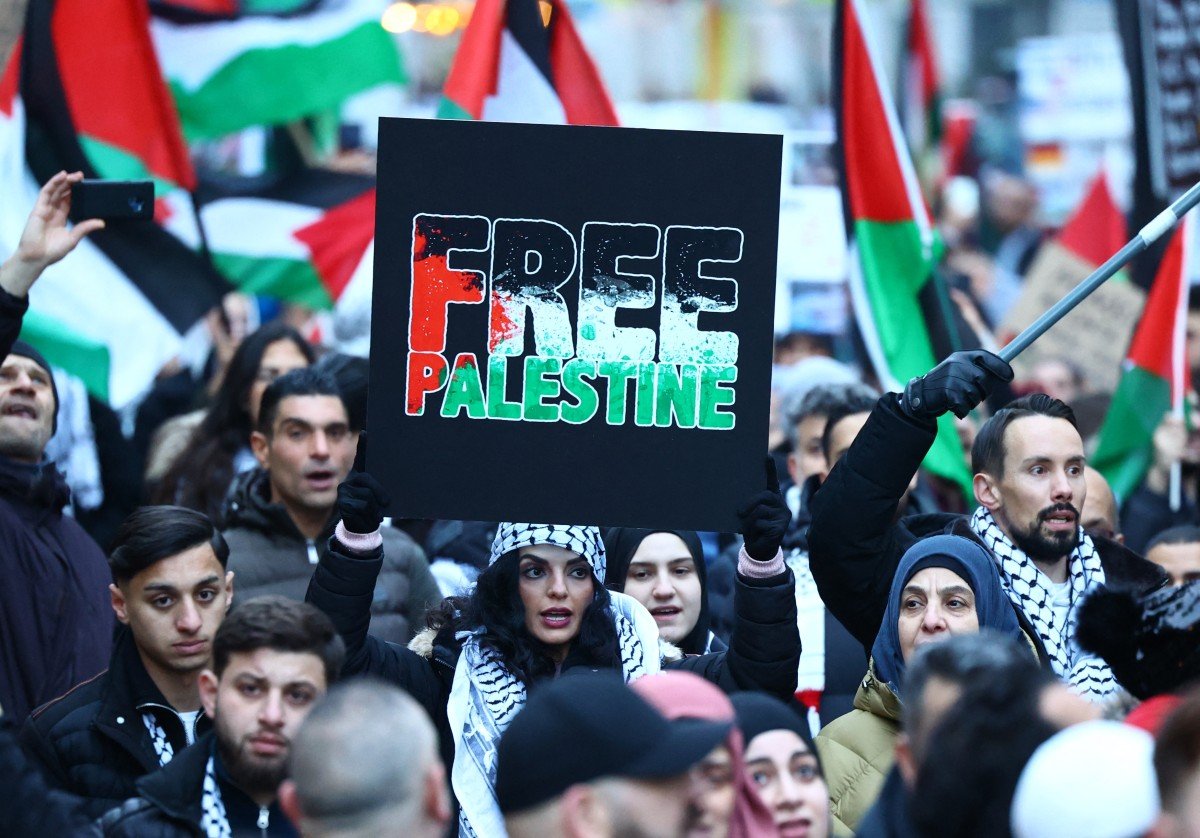
Targeting Labour
In Britain, the protest numbers were smaller after more than 300,000 people staged a pro-Palestinian march in London last Saturday.
One targeted an office where the leader of the main opposition Labour party, Keir Starmer, holds meetings, with protesters waving Palestinian flags and chanting “Ceasefire now”.
Some held placards reading “Stop the war in Gaza” and “Starmer — blood on your hands” amid a heavy police presence in the Camden area of north London.
Starmer, a former human rights lawyer whose party is predicted to win an election expected next year, has refused to call for a permanent ceasefire, sparking a string of resignations from his top team.
Instead, he has called for a humanitarian pause to Israel’s bombardment to allow aid in for the 2.4 million people in Gaza.
One protester at the London event, Nicoleta, 36, held a placard reading “Bombing hospitals is a crime”.
“Because I’m a health care provider I’m here to defend the hospitals, the innocent civilians, the children in incubators,” she said.
The rally was one of many smaller protests organised nationwide by the Stop The War Coalition.
London police said on Saturday they had now made 386 arrests since the October 7 attacks.
Showing support for Hamas is an offence in Britain, as the organisation is considered a terrorist group.

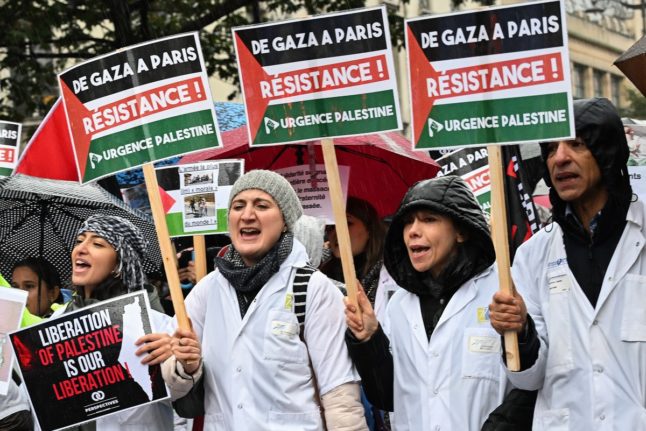
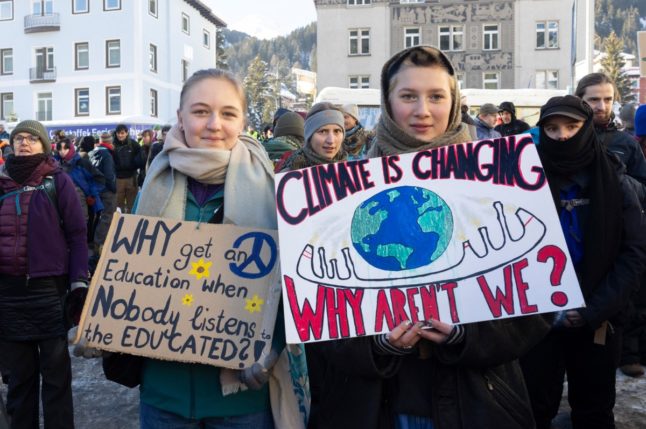
 Please whitelist us to continue reading.
Please whitelist us to continue reading.
Europe is dying before our eyes.